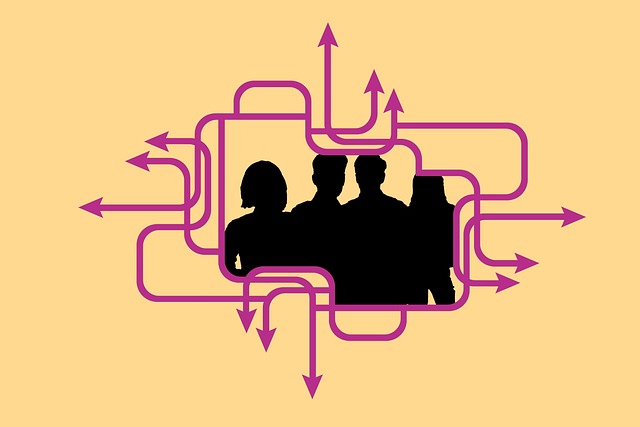Sales funnel strategies thrive on customer journey mapping, personalized content, and automated engagement. By understanding audience needs through segmentation, businesses create targeted content and offers. Lead nurturing via email and messaging builds trust while CRM systems optimize communication and track interactions. Engaging interactions, clear CTAs, and respectful follow-ups transform one-time buyers into loyal customers.
Building trust is key to converting leads into loyal customers. This article explores effective sales funnel strategies to foster trust at every stage of the customer journey. We’ll guide you through understanding your audience’s path, segmenting for personalized experiences, creating compelling content, implementing lead nurturing campaigns, and building lasting relationships through strategic follow-up and communication. Discover how these tactics can enhance trust, drive conversions, and differentiate your brand in a competitive market.
- Understand Customer Journey Through the Funnel
- Segment Your Audience for Personalized Experiences
- Create Engaging Content at Every Stage
- Implement Lead Nurturing Campaigns Effectively
- Build Relationships with Follow-Up and Communication Strategies
Understand Customer Journey Through the Funnel

In the world of sales funnel strategies, understanding your customer’s journey is paramount. It involves mapping out how prospects navigate through various stages, from initial awareness to post-purchase satisfaction. This process begins with attracting potential customers through compelling content and targeted marketing campaigns, often on a landing page designed for high conversion rates. As they progress, automated processes like email marketing keep them engaged, providing valuable information and nurturing their interest in your offerings.
The customer journey through the sales funnel is not just about making a single sale; it’s about building lasting relationships. By leveraging marketing automation tools, you can personalize interactions, offer tailored solutions, and address concerns at each stage. This approach fosters trust, turns prospects into loyal customers, and encourages repeat business. Ultimately, aligning your sales funnel strategies with the customer journey ensures that every interaction is designed to build rapport and maintain long-term relationships.
Segment Your Audience for Personalized Experiences

In today’s digital age, building trust with your audience is paramount for successful sales funnel strategies. One effective approach to achieve this is by segmenting your audience and tailoring personalized experiences for each group. By understanding their unique needs, preferences, and pain points, you can create targeted content, offers, and communications that resonate deeply. For instance, leveraging marketing automation tools allows you to automate personalized text message campaigns, ensuring timely and relevant interactions that enhance customer engagement and foster stronger connections.
Segmenting your audience isn’t just about dividing customers into broad categories; it involves digging deeper to identify distinct behaviors, demographics, and interests. This granular approach enables you to implement effective reputation management strategies by addressing specific concerns and building trust where it matters most. Whether through product recommendations, exclusive content, or timely reminders, personalized interactions leave a lasting impression, encouraging repeat business and advocating for your brand among their peers.
Create Engaging Content at Every Stage

At each stage of your sales funnel strategies, creating engaging content is key to building trust with potential customers. From awareness to consideration and conversion, tailored content that resonates with your target audience can significantly enhance their experience and encourage them to take the next step. In the early stages, educational and entertaining content helps establish you as an authority in your field, fostering a sense of familiarity and comfort.
As prospects move closer to the purchase decision, more focused and interactive content becomes effective. This could include product demonstrations, customer testimonials, or even using AI chatbot features to answer specific questions. Leveraging email marketing within your sales funnel strategies allows you to maintain consistent communication throughout the journey, delivering valuable insights and personalized offers that keep your brand top of mind while reinforcing trust.
Implement Lead Nurturing Campaigns Effectively

Implementing effective lead nurturing campaigns is a vital component of successful sales funnel strategies. Once you’ve captured potential customers’ contact information at the top of your funnel, it’s crucial to nurture those leads and guide them towards conversion. This involves sending targeted, relevant content via email marketing or even Whatsapp marketing—platform choices that should align with where your audience prefers to engage. By providing valuable insights, offers, or educational resources, you build relationships and demonstrate your brand’s expertise. A well-structured lead nurturing campaign keeps potential customers engaged while they progress through the sales funnel, increasing their likelihood of conversion.
Utilizing a customer relationship management (CRM) system is essential for managing these campaigns efficiently. CRMs allow you to automate tasks such as email scheduling, segmenting leads based on behavior or demographics, and tracking interactions. This not only saves time but also ensures personalized communication tailored to each lead’s stage in the sales funnel. As leads move deeper into the funnel, continue to refine your messaging to address their unique needs and concerns, further building trust and fostering a strong connection with your brand.
Build Relationships with Follow-Up and Communication Strategies

Building relationships is a cornerstone of any successful sales funnel strategy. It’s not just about closing deals; it’s about fostering connections that turn one-time buyers into loyal customers. Effective communication and thoughtful follow-up are key here. Personalize your messages to show you understand their needs and respect their time. A simple, automated email sequence can be a great start, but make sure each message feels tailored to the individual.
On your landing page, include clear calls-to-action that invite dialogue rather than just transactions. This could be in the form of live chat, feedback forms, or even simple prompts for questions or suggestions. Implementing these strategies shows your potential customers that you’re invested in their experience, which is crucial for building trust and fostering a robust customer relationship management system.
Building trust through effective sales funnel strategies is a multifaceted process. By understanding your customers’ journey, segmenting your audience for personalized experiences, creating engaging content at every stage, implementing lead nurturing campaigns, and fostering relationships with strategic follow-up and communication, you can significantly enhance customer trust and drive better business outcomes. Sales funnel strategies are not just about conversions; they’re about building lasting relationships that transform prospects into loyal advocates.
